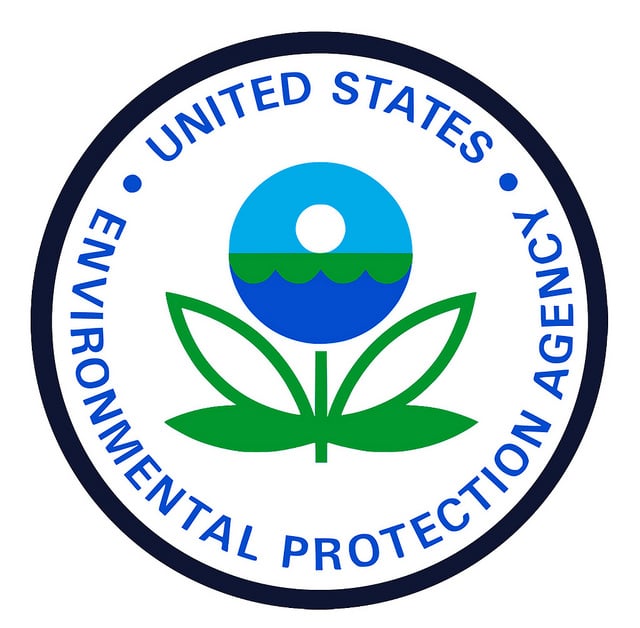In September 2025, California extended and amended authority for its statewide greenhouse gas (GHG) “cap and trade” program through 2045 – and rebranded it as “cap and invest.” The California Air Resources Board (ARB) has administered this program since 2012, as part of broader GHG reduction provisions created by 2006’s Assembly Bill (AB) 32. AB 32 initially committed the state to reduce total GHG emissions back to 1990 levels by 2020 (achieved in 2018); ARB’s latest GHG reduction scoping plan (issued in 2022), seeks to reduce statewide emissions to 85% below 1990 levels by 2045, achieving carbon neutrality. Subsequent legislation extended implementing authority for cap-and-trade and other related programs available to the California Air Resources Board (ARB) and other agencies through 2030. (I wrote about that extension (AB 398) HERE ). The newest legislation (AB 2017 and Senate Bill (SB) 840) continues the state’s GHG reduction efforts by making further changes to ARB’s cap and trade authority. The rest of this note summarizes these changes.
Read MoreAudit, Compliance and Risk Blog
California Extends and Amends its Greenhouse Gas Cap and Trade Program
Posted by Jon Elliott on Fri, Oct 17, 2025
Tags: climate change, sustainability, cap-and-trade, California, Climate, Carbon markets, Environmental Compliance, Climate Risk, California Regulations, Greenhouse Gas Emissions, GHG Reduction, cap-and-invest, California Air Resources Board
EPA proposes to eliminate most mandatory greenhouse gas emission reporting requirements
Posted by Jon Elliott on Fri, Oct 03, 2025
On September 16, 2025, the US Environmental Protection Agency (EPA) published a proposal to eliminate the vast majority of its longstanding Greenhouse Gas Reporting Program (GHGRP), which requires thousands of facilities and organizations to report annual emissions of greenhouse gases (GHGs) (40 CFR part 98). (I’ve written about this program over the years, most recently when EPA issued massive revisions in April 2024 (see HERE). The remainder of this note briefly summarizes EPA’s latest interpretation and identifies the small portion EPA proposes to retain, and the existing GHGRP.
Read More
Tags: EPA, Greenhouse Gas, Clean Air Act, Climate, Environmental Compliance, EPA Regulations, EPA Standards, GHG Reporting, EPA enforcement, Climate Disclosure, Climate Risk, Air Quality
EPA narrows criminal enforcement to follow administration priorities
Posted by Jon Elliott on Fri, Sep 05, 2025
The US environmental Protection Agency (EPA) continues to narrow its enforcement focus in order to follow Trump administration priorities. I recently wrote about EPA’s May 2025 statement of new enforcement policies (I wrote about that memo HERE). Now, EPA has announced further changes, to align its activities with the President’s Executive Order “Fighting Overcriminalization in Federal Regulations” (EO 14294). The remainder of this note summarizes these changes.
Read More
Tags: EPA, Environmental Policy, Environmental Compliance, EPA Regulations, EPA Standards, Trump Administration, Environmental Health and Safety, Environmental Protection Agency, EPA enforcement
SEC ends legal defense of climate-related disclosure requirements for public companies
Posted by Jon Elliott on Thu, May 15, 2025
On March 27, 2025 the US Securities and Exchange Commission (SEC) voted to stop defending rules adopted in 2024 (during the Biden administration) that would have required selected “public companies” (i.e, listed on national securities exchanges) to provide “climate-related disclosures for investors” in their registration statements and annual reports. SEC had stayed these rules’ effectiveness after being sued by two energy companies, which were later joined by other plaintiffs as well as state and nonprofit supporters of the rules. The latest SEC decision ends the agency’s defense in that litigation.
Read MoreTags: SEC, Environmental Policy, Climate, ESG, Environmental Compliance, Risk Management, Sustainability Reporting, Climate Disclosure, Climate Risk
EPA delays deadline to report 2024 greenhouse gas emissions
Posted by Jon Elliott on Mon, Apr 28, 2025
Since 2011, the US Environmental Protection Agency (EPA) has administered an extensive Greenhouse Gas Reporting Program (GHGRP), which requires thousands of facilities and organizations to report annual emissions of greenhouse gases (GHGs) (40 CFR part 98). Although reports are usually due by March 31 of the following year, EPA has delayed the deadline for reporting year (RY) 2024 until May 30, 2025. EPA cites delays in making the new version of its Electronic Greenhouse Gas Reporting tool (e-GGRT) available.
Read More
Tags: EPA, Greenhouse Gas, sustainability, GHGRP, Environmental Compliance, Environmental Regulations, Carbon Reporting, GHG Reporting, Climate Reporting, Compliance Update, Emission Reporting, eGGRT
Trump administration reworking the Environmental Protection Agency
Posted by Jon Elliott on Tue, Mar 04, 2025
Since returning to office in January, President Trump and his administration have promulgated many actions to reduce and revamp the US federal government, and additional actions focused on specific agencies. I wrote about general approaches to environmental regulation HERE. In addition, The Environmental Protection Agency (EPA) has been a target of specific directives, and new EPA administrator Lee Zeldin has already announced important policy and procedural changes at his agency. The remainder of this note summarizes EPA-specific changes ordered and/or instituted as of the end of February 2025.
Read MoreTags: EPA, tsca, clean water, Executive Order, Clean Air Act, environmental protection, Environmental Compliance, Trump, Trump Administration, Environmental Protection Agency
How President Trump and the Republican-led Congress make environmental regulatory changes?
Posted by Jon Elliott on Thu, Feb 27, 2025
Incoming President Trump and the Republican majorities in Congress have begun sweeping plans to reverse many of the outgoing Biden Administration’s environmental policies. The timing and practicality of these reversals depends very much on each of the targeted activity’s legal form – law, regulation, Executive Order (EO), or guidance document. They also depend on where each particular target is in the governmental process: a non-binding policy, a proposed regulation subject, a final regulation subject to administrative appeals or court attacks, and a final regulation. President Trump has taken early executive action under each of these sets of situations. I will write about some separately, but the remainder of this note summarizes each general type of situation, with examples of each set out in order ranging from quickest/easiest to most time consuming/difficult.
Read MoreTags: EHS, sustainability, Executive Order, Environmental Compliance, Policy Change, Trump, Trump Administration, Regulations
Environment and Climate Change Canada publishes Phase 1 reporting guidelines for Federal Plastics Registry
Posted by Jon Elliott on Mon, Feb 24, 2025
Canada has established a goal of zero plastic waste by 2030, and has established a variety of regulatory and informational programs to pursue that goal. As part of these effort, Environment and Climate Change Canada (ECCC) has established the Federal Plastics Registry (FPR), along with accompanying regulations requiring reporting by targeted producers of plastic packaging, electronic and electrical equipment, and single-use or disposable products. These entities’ reporting requirements expand annually in three “phases,” beginning with Phase 1 reports starting with selected 2024 data due by September 29, 2025. (I wrote about ECCC’s proposal to establish the FPR, HERE). The remainder of this note summarizes Phase 1 requirements and identifies Phase 2-4 targets.
Read More
Tags: Environmental risks, Environmental, climate change, Environmental Projects, Environment, Environmental Policy, Climate, plastics, Environmental Compliance, Plastic Waste
During 2024, at least five states considered legislation to enact “Climate Superfund” laws targeting fossil fuel companies, applying “polluter pays” principles enshrined in the US federal Superfund law (Comprehensive Environmental Response, Compensation and Liability Act (CERCLA of 1980) and its many state counterparts. At least two states enacted such laws – Vermont and New York. The rest of this note provides brief summaries of these laws.
Read MoreTags: Environmental risks, Environmental, Greenhouse Gas, climate change, Environmental Projects, Environment, Environmental Policy, Climate, environmental law, environmental protection, Environmental Compliance
EPA further limits uses of carbon tetrachloride and perchloroethylene
Posted by Jon Elliott on Fri, Jan 10, 2025
The Toxic Substances Control Act (TSCA) includes procedures for the Environmental Protection Agency (EPA) to evaluate risks presented by existing chemicals using the latest scientific information – incorporating information developed after a chemical entered use in the US. Based on these reviews, EPA updates its regulatory requirements, ranging from labeling-only through use restrictions up to and including bans from further distribution and use. (I summarized these review requirements HERE). On December 18, 2024, EPA published restrictions in the Federal Register, for carbon tetrachloride (CTC) and perchloroethylene (PCE), based on its hazard reviews for those chemicals. The rest of this note discusses these new restrictions.
Tags: Environmental risks, Environmental, EPA, tsca, Environmental Projects, chemical safety, Environment, Environmental Policy, Chemical Safety Board, Hazardous Chemicals, Environmental Compliance, EPA Regulations, EPA Standards









